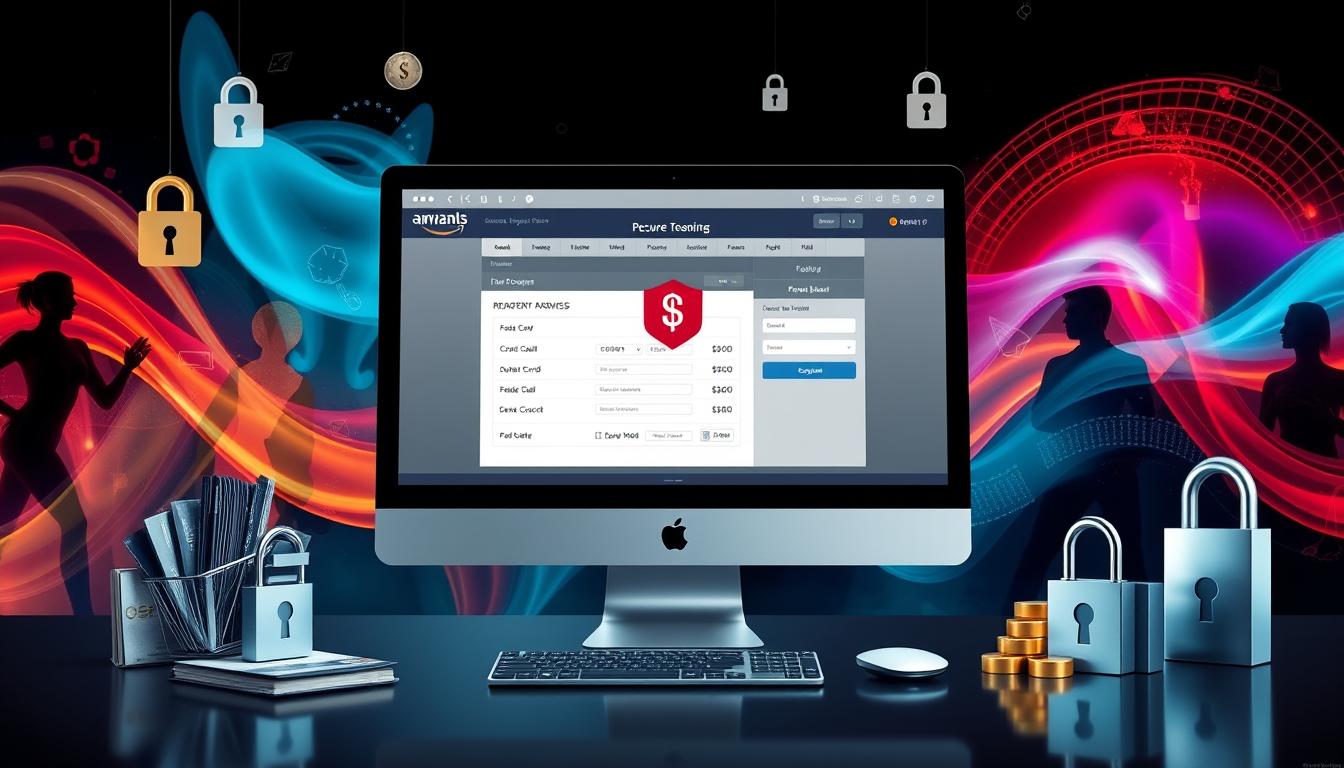In the era of digital commerce, learning how to set up a merchant account is a critical step for businesses planning to thrive in the online marketplace. If you’re looking to streamline online payment processing and start accepting credit card payments, understanding the merchant account setup process is essential.
Whether your business operates offline or online, a merchant account is a cornerstone for conducting transactions efficiently. Navigating the prerequisites such as gathering KYC documents and ensuring regulatory compliance can seem daunting. However, with the right guidance, you can set up your system seamlessly, aligning with your website policies and customer needs.
Understanding the Merchant Account Landscape
In today’s commerce environment, navigating the terrain of merchant services is essential for any business seeking to accept electronic payments. A deep understanding of how these accounts operate, the entities involved, and the services available can drastically influence your business operations and financial health.
Definition and Purpose of a Merchant Account
A merchant account acts as a critical bridge between your sales and your business bank account, holding funds temporarily after a customer makes a payment. This specialized financial account is a cornerstone for online retailers, brick-and-mortar stores, service providers, and nonprofits, enabling them to process credit card and other electronic transactions seamlessly.
The Role of Banks and Payment Processors
The successful execution of electronic transactions relies heavily on acquiring banks and payment processors. The acquiring bank is responsible for maintaining your merchant account and extending credit card processing capabilities. Meanwhile, payment processors, sometimes synonymous with merchant service providers, facilitate the transaction journey from swiping a card to transferring funds.
Types of Merchant Services for Various Business Models
The range of merchant services available is diverse, catering to the unique demands of each business model. Whether it’s mobile payment solutions for on-the-go transactions, e-commerce payment gateway setup, or point-of-sale systems for physical storefronts, understanding and selecting the right services is crucial for operational efficiency and customer satisfaction.
How Merchant Accounts Impact Your Payment Processing
Integrating a merchant account into your business’s financial structure has significant implications for your payment processing flow. Not only does it ensure you can cater to a broader customer base by accepting various payment methods, but merchant account integration also influences the speed at which you access your funds, the security of transactions, and your eligibility for certain financial services.
| Service Component | Function | Impact on Business |
|---|---|---|
| Merchant Account | Holds funds temporarily post-transaction | Enables credit and debit card acceptance |
| Payment Gateway | Encrypted transaction facilitator for e-commerce | Connects online store to payment processing network |
| Point-of-Sale (POS) System | Hardware or software for transaction processing | Streamlines in-person customer transactions |
| Payment Processor | Manages transaction approval and settlement | Reduces fraud risk, facilitates quick fund clearance |
| Acquiring Bank | Provides merchant account services | Liaison between business and credit card networks |
How to Set Up a Merchant Account: Prerequisites and Procedures
Embarking on the journey to set up a merchant account is critical for businesses looking to thrive in the digital economy. Before delving into the merchant account application, it’s vital to satisfy a checklist of merchant account requirements to ensure regulatory compliance. This process not only legitimizes your business but also puts you on firm footing for future financial transactions. Let’s explore the key steps together.
The bedrock of your merchant account foundation is registering your business. Whether you’re establishing a sole proprietorship or forming a corporation, you will need to supply various forms of company documentation that confirm the legitimacy and structure of your entity. Following registration, obtaining business licenses and permits specific to your industry or locality is just as essential.
In addition to these, securing an Employer Identification Number (EIN) from the Internal Revenue Service (IRS) is a non-negotiable step. Without it, not only will the merchant account application likely be rejected, but you’ll also miss complying with tax regulations that are integral to financial and regulatory compliance.
- Business Registration Documents – Proof of your business’s legal existence and structure.
- Business Licenses and Permits – Necessary for legal operation in your locality and industry.
- Employer Identification Number (EIN) – The IRS’s way to identify your business for tax purposes.
- Financial Statements – To establish the financial health and stability of your business.
- Merchant Policies – Clear terms of service and privacy policy for your customers.
Once you’ve compiled all the necessary documentation, you’re ready to move to the cornerstone of the setup process: the merchant account application. Here, you will provide all the gathered information and potentially additional details about your business model and anticipated transaction volumes. Each piece of information plays a role in the approval process and future capabilities of your merchant account.
Remember, every step you take towards finalizing your merchant account setup not only inches you closer to seamless online payment processing but also builds the groundwork for your business’s financial structure, essential for efficient and secure transactions. If you meticulously follow these guidelines, your business will be poised for success in the ever-expanding realm of electronic commerce.
Selecting the Right Merchant Account Provider
Choosing a merchant account provider is a decision that will have a lasting impact on the efficiency and success of your business’s payment handling. Consideration of merchant account fees, customer service, payment security, and how the provision integrates with your existing business system is essential. Let’s explore what you should scrutinize when making your decision.
Comparing Fees and Service Structures
The cost structure of merchant accounts varies significantly from one provider to another. It’s important to have a clear understanding of the types of fees you will be charged to avoid any unexpected cost. Analyze all potential fees, including transaction fees, statement fees, chargeback fees, and any miscellaneous fees that could affect your bottom line. Below is a detailed comparison to help you evaluate different fee structures.
Customer Support and Security Considerations
Exceptional customer service is indispensable, particularly when it comes to managing your finances. Prioritize providers with reliable and responsive customer support. In the digital age, payment security should be non-negotiable. Look for providers that offer robust security measures that comply with industry standards such as PCI DSS to safeguard your transactions.
Integration with Your Existing Business Systems
Seamless integration of your merchant account with existing business systems streamlines operations and reduces the likelihood of errors. The right provider should offer solutions that are compatible with your current setup, whether it’s an e-commerce platform, accounting software, or a point-of-sale (POS) system. This integration is key to maintaining cohesive workflows and ensuring accurate data management.
Conclusion
Embarking on the journey of how to set up a merchant account marks a pivotal step for your business, opening up a trove of merchant account benefits. It’s more than just an administrative task; it’s an upgrade to your business’s financial infrastructure, allowing you to serve your customers more effectively. The successful implementation of a merchant account can lead to a multitude of advantages such as wider payment options available to customers, improved cash flow management, a boost in sales, and overall customer satisfaction.
Maximizing the Benefits of Your New Merchant Account
To truly reap the benefits of your new payment system, ongoing management is crucial. Regularly reviewing your account to ensure it remains cost-effective and working for you rather than against you is key. Always stay aware of any changes in fees or terms offered by your merchant service provider. Remember, maintaining successful merchant account maintenance is not a ‘set and forget’ affair; it requires vigilant management to ensure it continuously aligns with your business needs and remains a valuable asset.
Common Pitfalls to Avoid in Merchant Account Setup
Despite the clear benefits, there are challenges to be mindful of. A common pitfall in setting up a merchant account is not fully understanding the fee structure, which can lead to unexpected costs that eat into your profit margins. It’s also important to ensure your business complies with all necessary payment processing laws and standards to avoid legal complications and maintain consumer trust. Lack of proper integration with current business systems can also lead to inefficiencies that hinder rather than help your operations.
Next Steps After Successful Merchant Account Integration
Once your merchant account is up and running, don’t sit back—capitalize on it. Look at your merchant account as a dynamic tool that can evolve with your business. Regularly assess your processing solutions and stay abreast of advancements in payment technology that can provide more value to you and your customers. Furthermore, it’s imperative to stay informed about regulatory changes to ensure your payment processing remains compliant. Solidify your foundation in e-commerce by constantly seeking ways to streamline operations, and ensure your merchant account operates seamlessly with your business’s growth trajectory.








Comments (0)